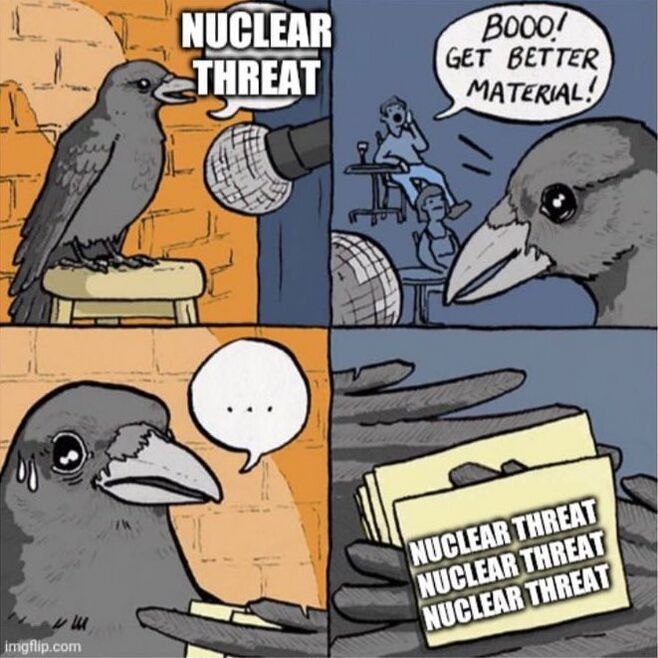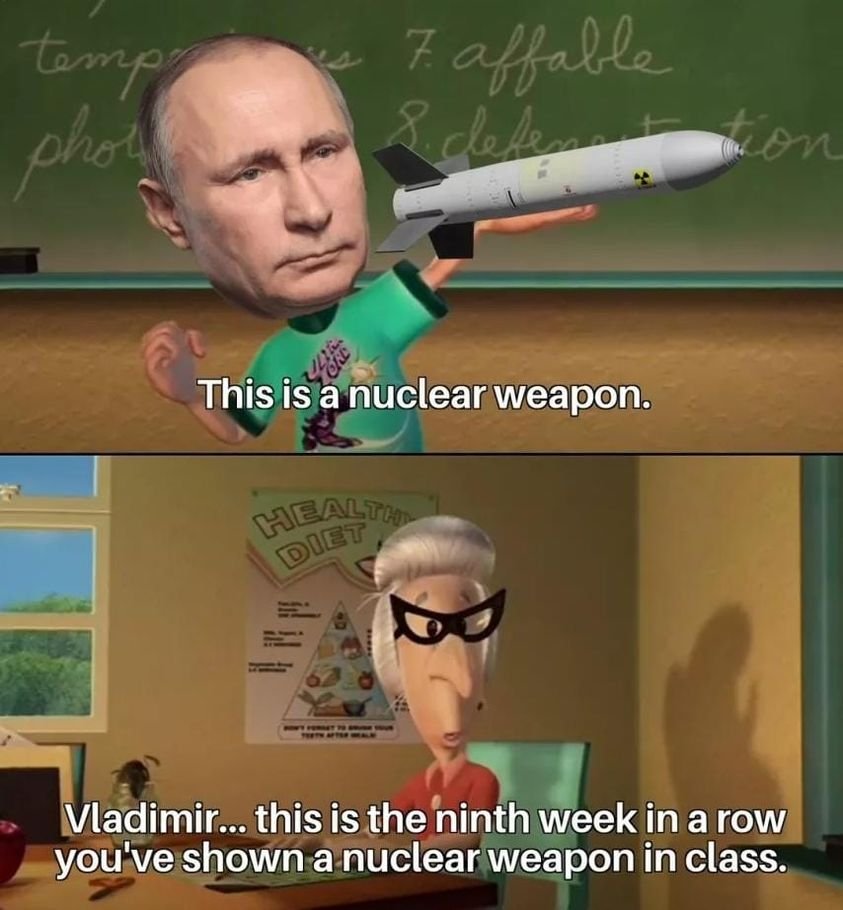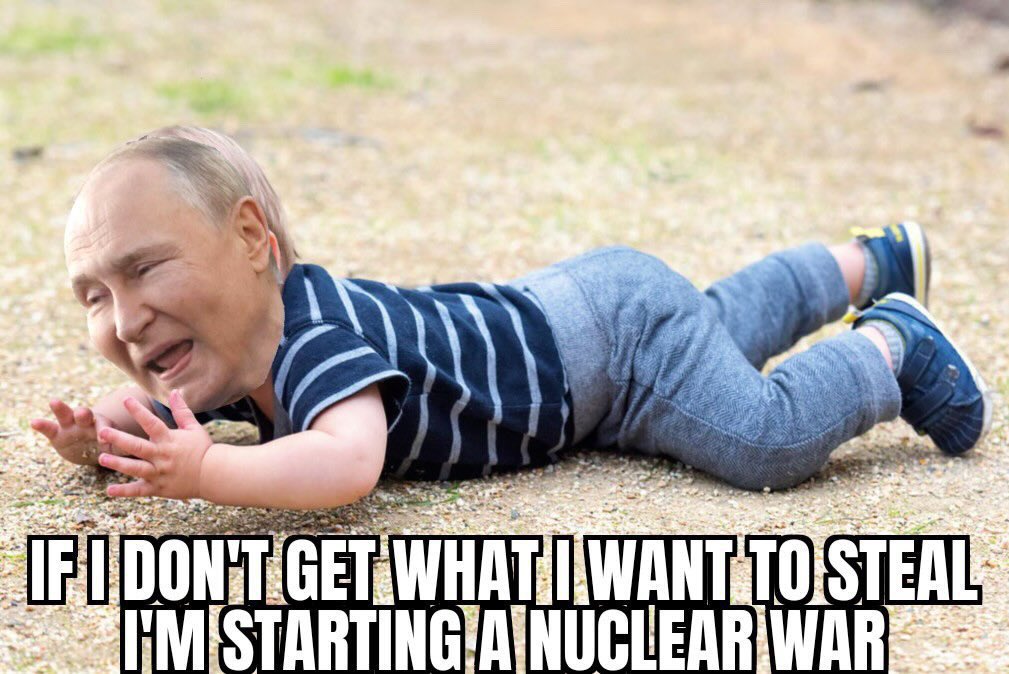In today’s Vatnik Soup, I’ll introduce a Ukrainian-born former State Duma deputy, Vladimir Medinsky. He is best known as one of the ideologues of the “Russkiy Mir”, for his close ties to Vladimir Putin, and for leading the “peace talks” in Turkey in 2022 and 2025.
1/20
1/20

During the late 1980s and early 1990s, Medinsky interned as a correspondent on the international desk of the TASS news agency, learning the ways of propaganda at an early age. Some time later, he earned two PhDs – one in political science and the other in history.
2/20

2/20


As is tradition in Russia, Medinsky’s academic work was largely pseudo-scientific and plagiarized. Dissernet found that 87 of 120 pages in his dissertation were copied from his supervisor’s thesis. His second dissertation was also heavily plagiarized.
3/20
3/20

Many Russian academics focus solely on spreading pro-Kremlin propaganda, and academic titles still carry weight in Russian society. That’s why they also use Western academics like Glenn Diesen and Tuomas Malinen to amplify Kremlin's bullshit narratives.
4/20

4/20


From his early days as a tobacco lobbyist to his current role as a presidential aide, Medinsky has consistently shown a knack for crafting narratives that serve the state. His political career began in the early 2000s, when he joined the State Duma…
5/20
5/20

…as a member of the United Russia party. He focused on tightening ad laws and pushing “conservative values.” In 2012, Putin made him Minister of Culture, signaling a shift toward a more controlled and ideologically driven cultural narrative in Russia.
6/20
6/20

As Minister from 2012 to 2020, he transformed the ministry into an ideological tool. One of Medinsky’s most significant, and dangerous, contributions has been within Russia itself, where he spent years reshaping the cultural sector to serve nationalist goals.
7/20
7/20

The plan was simple: produce films that glorify Tsarist Russia, and Soviet victories – while punishing anyone who dares to question Nazi collaboration, the gulags, Stalin-era purges, or the Chechen wars, branding them as enemies of the state.
8/20
8/20
https://x.com/P_Kallioniemi/status/1920850621638246494
Medinsky essentially followed Goebbels’ playbook: during his time as minister, he championed state-sponsored films that glorified Russian history and actively discouraged any works critical of the government, labeling dissenting voices as “unpatriotic”.
9/20

9/20


Medinsky’s most significant impact has been in the realm of historical revisionism. He has authored several books intended to debunk what he sees as myths about Russia, often downplaying or outright ignoring inconvenient historical truths.
10/20

10/20


His approach to history is less about academic accuracy and more about reinforcing a narrative that portrays Russia as a victim of Western aggression. One of his most controversial projects is the development of new history textbooks for schools.
11/20

11/20
https://x.com/jurgen_nauditt/status/1737162075888087271

These books promote a revisionist history that justifies Russia’s aggression in Ukraine,framing the 2014 annexation of Crimea & the 2022 invasion as necessary steps to defend Russian interests.They also portray the West as a constant threat seeking to destabilize Russia.
12/20
12/20

After Russia launched its full-scale invasion in February 2022, Medinsky was recast as the Kremlin’s chief negotiator in talks with Kyiv. His role wasn’t to seek peace, but to stage political theatre, framing the Ukrainians as the “bad guys”.
13/20
13/20

Medinsky, who was born in Ukraine, claimed in an interview with RBC Russia in 2023 that he had no hatred for Ukrainians and that Russia had no conflict with Ukraine. Yet, in Mar 2022, he wrote on his Telegram channel that Ukraine was allegedly preparing an offensive…
14/20
14/20

…in Donbas and that the Bucha massacre was staged by the Ukrainian government. He also claimed that “Russia wanted peace.” This has been Russia’s strategy all along: deny all wrongdoing, insist on peaceful intentions, and continue the barbaric invasion.
15/20
15/20

In 2025, when Putin called for direct negotiations between Russia and Ukraine, but then failed to appear in Istanbul to meet with Zelenskyy, it was Medinsky and his team who were sent instead. Zelenskyy rightly dismissed the talks as a “sham.”
16/20
16/20

According to The Economist correspondent Oliver Carroll, Medinsky stated during the negotiations: “We don’t want war, but we’re ready to fight for a year, two, three—however long it takes. We fought Sweden for 21 years. How long are you ready to fight?”
17/20

17/20


Medinsky also allegedly said, “Maybe some of those sitting here at this table will lose more of their loved ones. Russia is prepared to fight forever.” The Russian negotiators further threatened to seize the Kharkiv and Sumy regions in northeastern Ukraine.
18/20
18/20

The negotiations themselves were indeed a sham. Russia reportedly made “unrealistic” demands that went “far beyond anything ever discussed,” including the withdrawal of Ukrainian troops from their own territory as a condition for a ceasefire.
19/20
19/20

To conclude, Vladimir Medinsky is a prominent Russian political figure, historian, and a loyal workhorse within Putin’s inner circle. He plays a unique role: the Kremlin’s playwright, rewriting history to fit their narrative.
20/20
20/20

The 2nd edition of “Vatnik Soup — The Ultimate Guide to Russian Disinformation” is officially out!
You can order your copy here:
kleart.eu/webshop/p/vatn…
You can order your copy here:
kleart.eu/webshop/p/vatn…
• • •
Missing some Tweet in this thread? You can try to
force a refresh
































